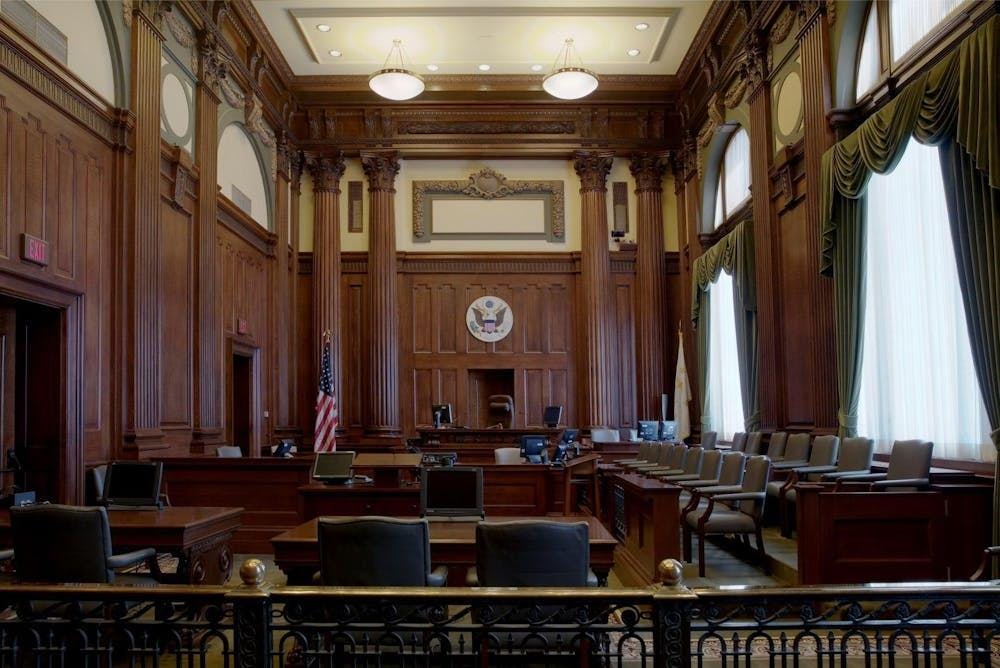In the face of alleged disruptions to the dispersal of federal funding, Chief Judge John McConnell Jr. ’80 of the Rhode Island District Court doubled down on a Jan. 31 ruling restraining the Trump administration’s sweeping pause on federal funds.
Hours after the order, the Trump administration filed an appeal against the initial ruling.
On Jan. 27, the U.S. Office of Management and Budget ordered a pause on all federal funding, The Herald previously reported. In response, nearly two dozen state attorneys general sued the Trump administration, claiming that the OMB directive was unconstitutional and would cause “immediate and devastating harm.”
McConnell then issued a temporary restraining order on the freeze, effectively ordering the temporary resumption of federal funding.
Last Friday, Rhode Island Attorney General Peter Neronha filed a motion alongside the attorneys general of 21 other states and the District of Columbia to enforce the order. The plaintiffs claimed that the Trump administration was not obeying the judge’s ruling, stating that since then, “federal funding recipients across the country have reported trouble accessing their congressionally allocated funds,” Neronha said in a press release.
Brown has also waded into the fight, with Vice President for Research Greg Hirth ScM’87 PhD’91 submitting a declaration in support of Neronha’s motion to “ensure the continued flow of federal funding to all current grantees, including Brown,” according to a University press release.
When the OMB issued its directive, “Brown experienced near-immediate disruptions to its ongoing research projects,” Hirth wrote in the declaration.
“If the pause in federal financial assistance were to be reinstated, or if such funding were to be withdrawn permanently,” all federally funded University research projects “would be in jeopardy,” he wrote.
The defendants — which include President Trump and several other federal offices, departments and department heads — must restore the frozen funding and comply with the order, according to McConnell’s ruling.
The plaintiffs cited evidence of “ongoing disruptions impacting disbursement to states, and federal funds that remain blocked,” according to a press release from Neronha’s office.
This evidence demonstrated that the Trump administration has continued to “improperly freeze federal funds and refused to resume disbursement of appropriated federal funds,” McConnell wrote in the ruling.
The court order further rejected the defendant’s argument that the purpose of the freeze was to root out fraud. “The freezes in effect now were a result of the broad categorical order, not a specific finding of possible fraud,” McConnell added.
Such broad categorical funding freezes are “likely unconstitutional” and cause “irreparable harm to a vast portion of this country,” he continued. The defendants may ask for “targeted relief” from the order in specific instances in which they can demonstrate that they are complying with the ruling, McConnell ruled.
The court further noted that individuals who disobey a court order risk being found in criminal contempt of the court.
Neronha and the White House did not respond to a request for comment from The Herald.
Vice President JD Vance warned Sunday that “judges aren’t allowed to control the executive’s legitimate power” in a declaration to the judiciary who have, thus far, issued rulings that have attempted to stop many of Trump’s executive actions.





